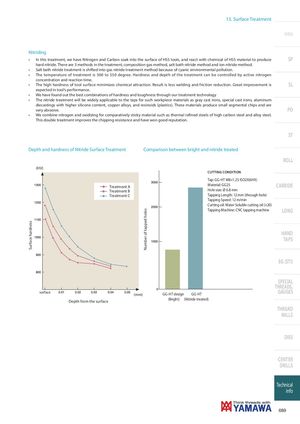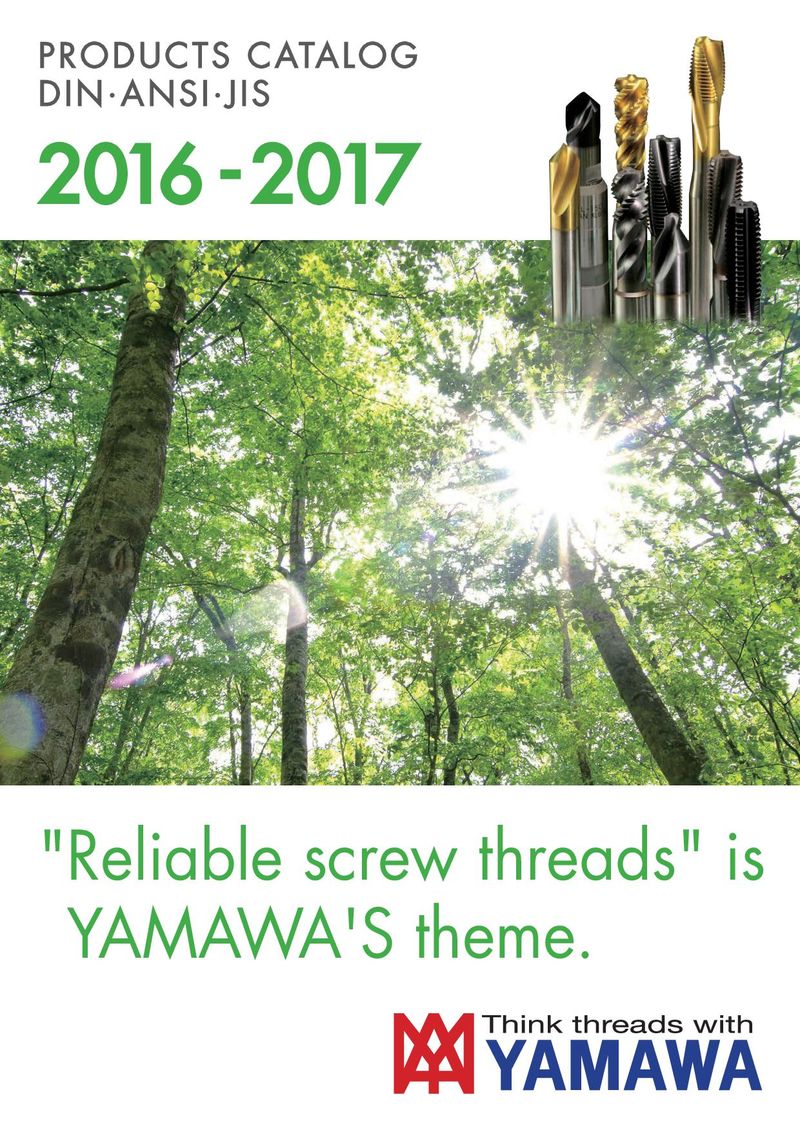Общий каталог Yamawa 2021 - страница 688
Навигация

Surface hardness Number of tapped holes 15. Surface Treatment Intro Nitriding • In this treatment, we have Nitrogen and Carbon soak into the surface of HSS tools, and react with chemical of HSS material to produce SP hard nitride. There are 3 methods in the treatment, composition gas method, salt bath nitride method and ion nitride method. • Salt bath nitride treatment is shifted into gas nitride treatment method because of cyanic environmental pollution. • The temperature of treatment is 500 to 550 degree. Hardness and depth of the treatment can be controlled by active nitrogen concentration and reaction time. • The high hardness of tool surface minimizes chemical attraction. Result is less welding and friction reduction. Great improvement is SL expected in tool’s performance. • We have found out the best combinations of hardness and toughness through our treatment technology • The nitride treatment will be widely applicable to the taps for such workpiece materials as gray cast irons, special cast irons, aluminum diecastings with higher silicone content, copper alloys, and resinoids (plastics). These materials produce small segmental chips and are very abrasive. PO • We combine nitrogen and oxidizing for comparatively sticky material such as thermal refined steels of high carbon steel and alloy steel. This double treatment improves the chipping resistance and have won good reputation. ST Depth and hardness of Nitride Surface Treatment Comparison between bright and nitride treated ROLL (HV) CUTTING CONDITION Tap: GG-HT M8×1.25 ISO2X(6HX) Treatment A Material: GG25 CARBIDE Treatment B Hole size: Ø 6.8 mm Treatment C Tapping Length: 12 mm (through hole) Tapping Speed: 12 m/min Cutting oil: Water Soluble cutting oil (×20) Tapping Machine: CNC tapping machine LONG HAND TAPS EG (STI) SPECIAL THREADS, surface (mm) GG-HT design GG-HT GAUGES Depth from the surface (Bright) (Nitride treated) THREAD MILLS DIES CENTER DRILLS Technical info 689
 Обший каталог Yamawa 2016 - 2017
Обший каталог Yamawa 2016 - 2017 Краткое руководство Yamawa по каталогам
Краткое руководство Yamawa по каталогам Общий каталог Yamawa 2022 - 2023
Общий каталог Yamawa 2022 - 2023 Каталоги Yamawa твердосплавные метчики для закаленной стали
Каталоги Yamawa твердосплавные метчики для закаленной стали